July 06, 2021 | Vanessa McMains
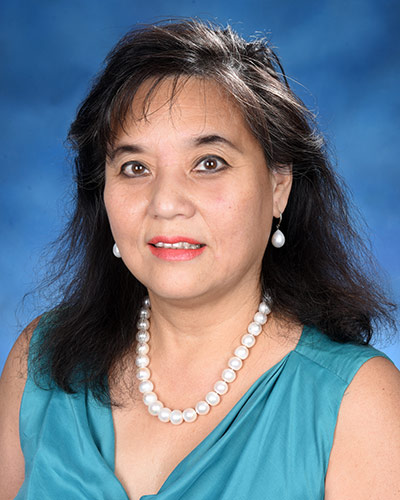
Multi-Disciplinary Approach to Eradicate All Traces of HIV from Body, and Treat Co-Existing Substance Use Disorders/Addiction
Linda Chang, MD, MS, Professor of Diagnostic Radiology & Nuclear Medicine at the University of Maryland School of Medicine (UMSOM), received the National Institute on Drug Abuse (NIDA) 2021 Avant-Garde Award (DP1) for HIV/AIDS and Substance Use Disorder Research, a National Institutes of Health (NIH) Director’s Pioneer Award. This prestigious award supports researchers with exceptional creativity, who propose high-impact research with the potential to be transformative to the field. Her proposed project will involve a team of experts in brain imaging, infectious diseases, addiction, animal research, and gene-editing technology with the goal to essentially eradicate all traces of HIV from the body, and treat commonly co-existing substance use disorders. 2021 Avant-Garde Awardees are expected to receive more than $5 million over five years.
“I am extremely pleased, and feel very fortunate to have received this award,” says Dr. Chang, who has a secondary appointment in the Department of Neurology at the UMSOM. “This project takes my work in a new direction. I believe my track record of being able to work across multiple disciplines with various researchers to initiate new areas of research and getting good results, along with the outstanding collaborators and resources at UMB, gave the proposal reviewers confidence that my team and I can significantly advance this new project.”
About 38 million people around the world live with HIV, according to the Centers for Disease Control and Prevention. Although antiretroviral therapies can treat HIV to the point of undetectable viral levels and lead to long, healthy lifespans, these medications must be taken for life to prevent a resurgence, as HIV can hide from these drugs by integrating copies of itself into a person’s genome. Once the drugs are stopped, the virus can reemerge.
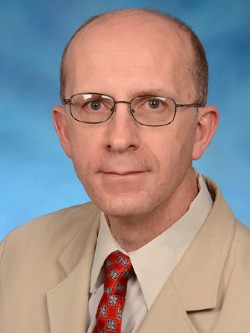 From start to finish, Dr. Chang’s plan is to remove HIV from the genome, even in tough to-reach spots like the brain, get more of the antiretroviral therapies into the brain, and stimulate the reward system in the brain to reduce drug cravings.
From start to finish, Dr. Chang’s plan is to remove HIV from the genome, even in tough to-reach spots like the brain, get more of the antiretroviral therapies into the brain, and stimulate the reward system in the brain to reduce drug cravings.
Her research will start out with mice before it can be tested in people. Dr. Chang plans to use the gene-editing technology known as CRISPR to cut out copies of the hidden HIV genes in the genomes of mice, so they can be eradicated by antiretroviral drugs.
However, directing the CRISPR therapy into the brain can be difficult because of the blood-brain barrier, which protects the brain from infectious bacteria and foreign substances. The blood-brain barrier also prevents antiretroviral drugs from reaching high enough concentrations in the brain and central nervous system to effectively destroy HIV.
To seek out HIV in the brain, Dr. Chang and her team will temporarily disrupt the blood-brain barrier to allow more of the antiretroviral drugs or the CRISPR compounds to breach that barrier using an unique resource at the University of Maryland—an MRI-guided focused ultrasound system. This technique uses an MRI scan to help guide 2,000 pinpointed beams of high energy sound waves, along with microscopic bubbles, to non-invasively and temporarily open an area of the brain with the goal of eliminating the hidden reservoirs of virus in the brain’s immune cells.
About half of people with HIV use substances, use drugs or alcohol, or have substance use disorders. Even tobacco or cannabis use in people with HIV is at 2-3 times that of the general population. Together with Victor Frenkel, PhD, Associate Professor of Radiology and Director of Translational Focused Ultrasound Research at UMSOM, and Donna Calu, PhD, Assistant Professor of Anatomy and Neurobiology, Dr. Chang will use low-energy MR-guided focused ultrasound to suppress brain activity in the reward center of the brain, called the nucleus accumbens. They hope this approach will suppress drug cravings in people with HIV who have substance use disorders.
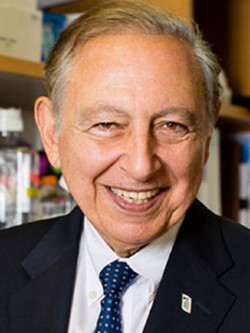 The different components of this project will first be tested in mouse or rat models before moving onto clinical studies. As HIV does not normally infect mice, researchers use “humanized” mice that have weak immune systems, which are replaced with human blood stem cells in the bone marrow that naturally develop into human immune cells that can be infected with HIV. Although these humanized mice make lots of T cells— a main cell for HIV infection—they don’t make the immune cells that HIV uses to hide in the brain, known as microglia. Recently, Dr. Chang’s collaborator, Howard E. Gendelman, MD, Margaret R. Larson Professor of Internal Medicine and Infectious Diseases Chair at University of Nebraska Medical Center, and his lab created a modified humanized mouse that has an extra human gene that allows the human blood stem cells to now make microglia.
The different components of this project will first be tested in mouse or rat models before moving onto clinical studies. As HIV does not normally infect mice, researchers use “humanized” mice that have weak immune systems, which are replaced with human blood stem cells in the bone marrow that naturally develop into human immune cells that can be infected with HIV. Although these humanized mice make lots of T cells— a main cell for HIV infection—they don’t make the immune cells that HIV uses to hide in the brain, known as microglia. Recently, Dr. Chang’s collaborator, Howard E. Gendelman, MD, Margaret R. Larson Professor of Internal Medicine and Infectious Diseases Chair at University of Nebraska Medical Center, and his lab created a modified humanized mouse that has an extra human gene that allows the human blood stem cells to now make microglia.
“These new mice mean that these experiments can be done in a fraction of the time and cost and without the other hurdles that come along with using non-human primates, which are the only other animal that a special strain of HIV can infect,” says collaborator Alonso Heredia, PhD, Associate Professor of Medicine and scientist at UMSOM’s Institute of Human Virology.
He adds, “There have been many attempts to eradicate HIV in the body, and it is thought they have not been successful, in part because we cannot get to the HIV reservoirs in the brain. If this works, we will be much closer to a practical cure for HIV.” Dr. Heredia will be collaborating with Dr. Chang on this project using HIV-infected humanized mice that he has developed for his other ongoing projects.
For their addiction studies, Dr. Chang’s team will use the expertise and rodent models of addiction developed and optimized by Mary Kay Lobo, PhD, Professor of Anatomy and Neurobiology, and Dr. Calu. The mice will self-administer fentanyl, a powerful, synthetic opioid.
Dr. Frenkel and Dheeraj Gandhi, MBBS, Professor of Diagnostic Radiology and Nuclear Medicine and Clinical Director of Center of Metabolic Imaging and Therapeutics at UMSOM, are the team’s MRI-guided focused ultrasound and clinical research experts.
“My hearty congratulations to Dr. Chang and her colleagues and collaborators. If anything is called ‘cutting edge,’ this work surely qualifies for that praise. We wish this group all the success possible,” said Robert C. Gallo, MD, the Homer & Martha Gudelsky Distinguished Professor in Medicine, Co-Founder and Director, Institute of Human Virology (IHV), University of Maryland School of Medicine, a Global Virus Network (GVN) Center of Excellence, and GVN Co-Founder and International Scientific Advisor.
Dr. Chang is an expert in using brain imaging to study how HIV or drug use affect the brain in adults and during adolescence, and how exposure to drugs in the womb affects childhood development. She has also conducted clinical trials for treating HIV-associated cognitive disorders and substance use disorders.
Dr. Chang joined UMSOM in 2017 through the Dean’s Special Trans-Disciplinary Recruitment Award Program (STRAP). The STRAP Initiative was part of UMSOM's multi-year research strategy ACCEL-Med (Accelerating Innovation and Discovery in Medicine) to increase the quality and reputation of clinical and basic science research bringing UMSOM among other top-tier medical research schools.
“Dr. Chang’s arrival to UMSOM spurred the exact kind of collaborative efforts we had hoped to foster through our recruitment program in order to accelerate discoveries, treatments and cures for the world’s most pressing diseases,” says UMSOM Dean E. Albert Reece, MD, PhD, MBA, Executive Vice President for Medical Affairs, UM Baltimore, and the John Z. and Akiko K. Bowers Distinguished Professor. “I look forward to following her team’s progress on this ambitious project in the hope that one day we can eradicate HIV.”
Dr. Chang served on the National Advisory Council on Drug Abuse for NIDA and is a current member on the Council of Councils at the NIH.
Contact
Vanessa McMains
Director, Media & Public Affairs
Institute for Human Virology
University of Maryland School of Medicine
vmcmains@ihv.umaryland.edu
443-875-6099
Related stories
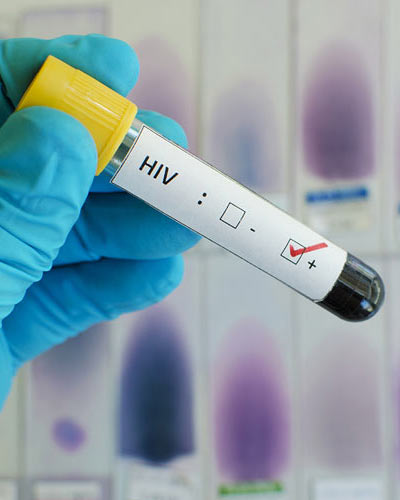
Monday, November 24, 2025
New Study Identifies Key Mechanism Driving HIV-Associated Immune Suppression
Researchers from the Institute of Human Virology (IHV) at the University of Maryland School of Medicine have discovered how a specific type of immune cell may contribute to the persistence of HIV infections. The finding offers new insight into why the virus remains difficult to cure even with effective antiretroviral therapy.
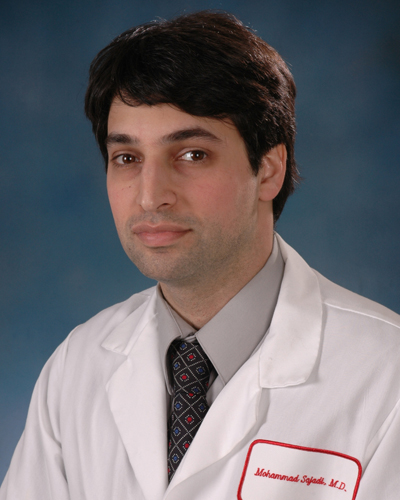
Wednesday, March 20, 2024
New Study Reveals Insights into Lack of Durability in COVID Antibody Response to Infections & Vaccines
Researchers at the Institute of Human Virology (IHV) at the University of Maryland School of Medicine published a new study in the Journal of Infectious Diseases investigating the short-lived antibody response following SARS-CoV-2, the virus that causes COVID.
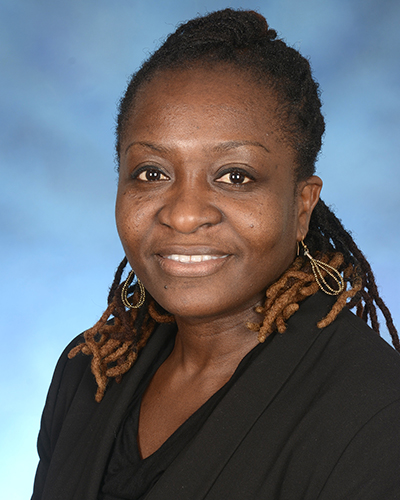
Thursday, June 22, 2023
STAT: A looming penicillin shortage threatens pregnant adults with syphilis and their newborns
Pfizer announced last week that it expects to run out of a key drug for treating syphilis in the near future — a looming problem that health professionals say could exacerbate syphilis rates, widen racial disparities in sexually transmitted diseases, and stymie global access to the antibiotic, especially within lower-income countries. The drug in question is Bicillin, an injectable, long-acting form of penicillin most commonly used to treat syphilis in adults as well as childhood infections.

Thursday, April 27, 2023
Current HIV Research: Milestones: Dr. Robert C. Gallo and the Discovery of HIV-1
In this issue of the journal, we inaugurate a new series entitled “Milestones.” This series will encompass interviews with some of the pioneers that have laid the foundations of HIV research. Revisiting these landmarks while taking into account the prospect of their founders should be an inspiration to our readers, particularly the youngest generation. Nobody better than Dr. Robert Gallo could be the protagonist of the inaugural “Milestone,” with his recount of the discovery of HIV-1, the causative agent of AIDS, and the development of the first blood test to diagnose HIV-1 infection.
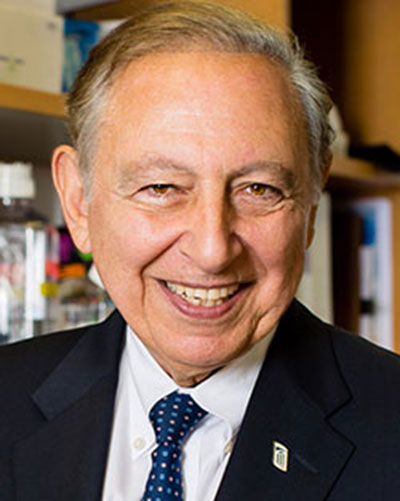
Wednesday, January 18, 2023
BBC: The scientist who smuggled HIV in her bag into her country to study it and save lives
Acquired immune deficiency syndrome, AIDS, had been recognized as a new disease in 1981, when an increasing number of young homosexuals died of unusual infections and rare cancers. It was also known to affect intravenous drug users and some were known to have contracted it through blood transfusions.

Friday, January 06, 2023
USA Today: Fact check: Research proves HIV is the cause of AIDS, contrary to viral claim
The claim: There is no proof HIV is the cause of AIDS. A Dec. 15 Facebook video shows Kary Mullis, a scientist known for denying the link between HIV and AIDS, claiming again there is no proof HIV is the cause of AIDS. The post was shared more than 1,000 times in a week. The clip comes from a 2009 documentary that promoted AIDS denialism, which has more than 300,000 views on YouTube.

Wednesday, December 21, 2022
Lead Stories: Fact Check: Doctor Did NOT Say On Video That He Manufactured AIDS As Bio Weapon -- This Is A Soviet-Era Disinformation Hoax
Did an American doctor admit on video that he created the HIV and AIDS viruses in a U.S. military medical laboratory, Fort Detrick, so that they could be used as biological weapons for depopulating the world? No, that's not true: Dr. Robert Gallo, the doctor featured in the video, makes no such admission in the footage, and told Lead Stories that his scientific work was not part of any plan to weaponize HIV/AIDS. Historical records show that the claim is a well-documented hoax that dates to a Soviet disinformation campaign from the 1980s.
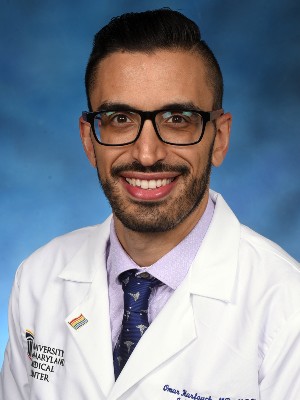
Thursday, December 01, 2022
Everyday Health: 10 Facts About HIV/AIDS Everyone Should Know
A basic understanding of HIV and AIDS can help dispel the myths, erase stigma, prevent virus transmission, and save lives — beginning with your own.
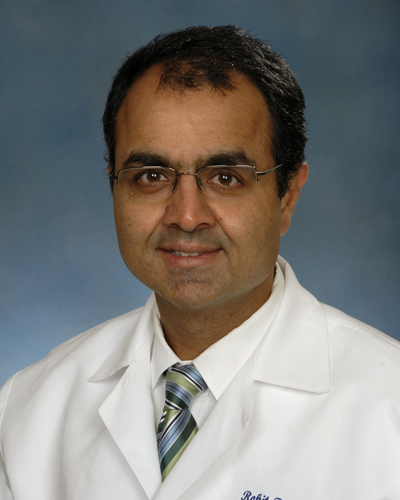
Wednesday, September 28, 2022
TheBody: What Is HIV Remission?
A cure for HIV remains elusive, but one word that is commonly heard is “remission.” Even though it doesn’t mean eradication of the virus, remission is a good thing. But what exactly is remission? Can HIV go into remission? And how does it differ from a cure? Generally, remission means that a disease has stopped being active but hasn’t necessarily been eliminated.

Monday, September 19, 2022
TheBody: HIV Seroconversion: Timeline, Symptoms, Testing, and Treatment
There are several stages of HIV infection—from the initial exposure to the virus to the development of AIDS—but a lot of important changes happen during the earliest stage: seroconversion. So, exactly what is HIV seroconversion? It is the stage in which the immune system first starts to make antibodies to try to fight HIV after exposure. Once detectable levels of antibodies are produced, this is described as seroconversion.

Monday, September 19, 2022
TheBody: What Are the Chances of Getting HIV from One Exposure?
You had a one-night stand with someone of questionable HIV status. Now the panic begins. Could you have HIV after only one exposure? What are the odds?

Tuesday, May 31, 2022
Medscape: Fatigue Affects Cognitive Processing Speed in the Aging HIV Population
Successful aging is something that most of us strive for. But with aging comes a pervasive condition called fatigue that, in many older adults, interferes with everyday functioning, mental health, social support, and overall quality of life. The relationship between fatigue and cognitive and functional impairment is one of particular interest in people living with HIV (PWH), a patient population that is disproportionately affected but whose lifespan now matches that of the general population.
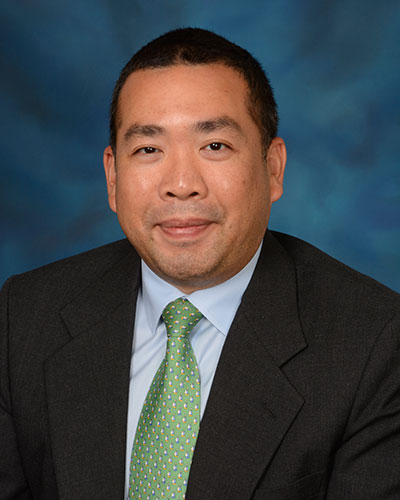
Friday, May 20, 2022
NIH Grant Awarded to Study HIV Drug-Resistant Genetic Mutations Across Africa
University of Maryland School of Medicine (UMSOM)’s Institute of Human Virology (IHV) researchers received funding from the National Institutes of Health’s National Institute of Allergy and Infectious Diseases (NIAID) for $2.7 million to study genetic changes in two genes from the HIV-1 virus that may make it resistant to antiretroviral therapy. The study, named INSPIRE, will analyze genetic variation in types of HIV circulating in a handful of African countries that will help to better understand the implications of these mutations and will improve clinical management of patients.
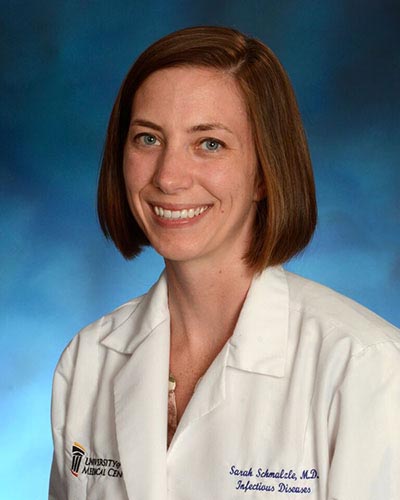
Tuesday, May 10, 2022
Medscape: Decentralizing PrEP Offers a Roadmap for Retention
Good solutions have great roadmaps. For HIV preexposure prophylaxis (PrEP), the road map might just be that of contraceptive care. Once an onerous process, over time contraceptive care exploded into a range of options across a broad landscape in terms of approach and accessibility. How then do organizations help vulnerable patients navigate their PrEP journeys using the contraceptive roadmap as a guide?
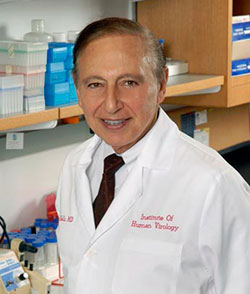
Friday, March 18, 2022
Deutsche Presse-Agentur: Virus hunt for decades: US researcher Robert Gallo turns 85
Few scientists in the world can come up with as many successes as Robert Gallo: The US researcher was involved in the discovery of the AIDS virus, found leukemia pathogens and other deadly viruses. Now he is 85 - and works even harder than before.
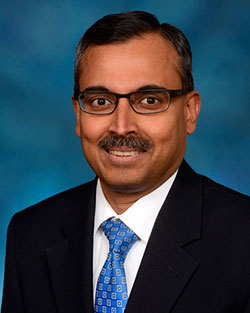
Thursday, March 10, 2022
Healthline: HIV-1 May Be More Virulent When Transmitted Through Penile-Vaginal Intercourse
HIV-1 can be transmitted through vaginal, anal, and oral sex, whether it’s with a same-sex or different-sex partner. But the risk of developing it seems to vary depending on how the disease is transmitted. In fact, the HIV virus may be more virulent when passed between male and female partners who have penile-vaginal sex than among men who have anal sex with other men, according to a new study from the Indian Institute of Science.

Thursday, March 10, 2022
HIV Plus: One Woman Shares Her Journey of Living with HIV for Over Three Decades
In honoring long-term survivors and National Women and Girls HIV Awareness Day on March 10, I had the opportunity to speak with Ms. Kathy Bennett. She is a 63-year-old Black woman who has been living with HIV for over 31 years. She recently led the longest running HIV support group in Maryland.

Wednesday, February 16, 2022
WBAL: Maryland HIV researcher on latest research: It's not a cure
Scientists used a cutting-edge stem cell transplant method to treat a woman's HIV, but a lead researcher in Maryland said it's too soon to celebrate. A U.S. woman is the third known person who is in HIV remission after receiving stem cells from umbilical cord blood, an American research team announced Wednesday.
.jpg)
Monday, February 07, 2022
The GW Hatchet: University administers first doses of mRNA HIV vaccine through Moderna partnership
GW was one of the first institutions in the country to administer doses of the first mRNA HIV vaccines to human test subjects late last month. The School of Medicine and Health Sciences and its Vaccine Research Unit collaborated with Moderna to test the safety of the vaccine and the immune responses of two participants in the phase 1 clinical trial.

Friday, February 04, 2022
WYPR: How the COVID pandemic rattled HIV testing
The COVID pandemic did not end the HIV-AIDS epidemic; it may have obscured it for a while, raising hurdles to getting tested for HIV.
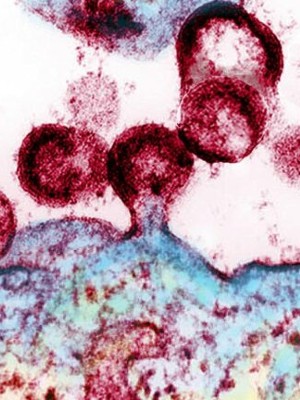
Wednesday, January 26, 2022
STAT: Early research suggests cancer drug could help flush HIV from its hiding spots
In a study published Wednesday in Science Translational Medicine, researchers looked at 32 patients that had both cancer and HIV and found that pembrolizumab, which revives the immune system and encourages it to attack tumors, also has the ability to flush HIV out of its hiding spot in immune cells.

Wednesday, November 10, 2021
Omaha World-Herald: UNMC researchers develop 'molecular scissors' to target HIV
Researchers at the University of Nebraska Medical Center have used a new method they’re calling a “molecular scissors” to nearly eliminate HIV embedded in the genetic material of human cells.
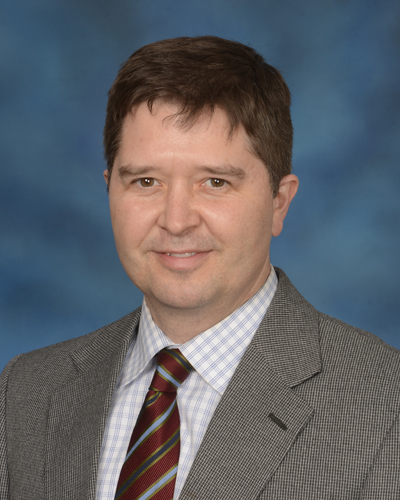
Monday, June 07, 2021
POZ: Integrate Adult and Pediatric HIV Care to Ease Youth Transition to Adult Care
Embedding an adult HIV medicine clinician and care navigator into a Baltimore pediatric HIV clinic led to 95% of young people remaining engaged in adult care one year after transition, according to a report in AIDS Care.
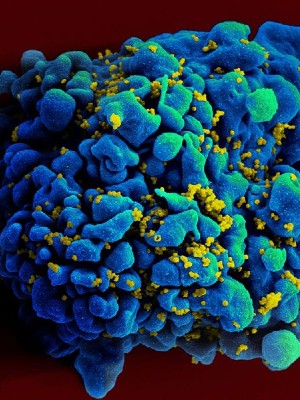
Thursday, May 27, 2021
Baltimore Sun: Maryland researchers study whether HIV cure can come from infusing patients with genetically modified ‘super T cells’
A week ago, a Washington, D.C., man in his 30s with HIV became the first person to be infused with a heaping load of his own genetically modified cells that a Maryland biotech firm believes one day could lead to the elusive cure for the disease. American Gene Technologies’ method involves taking T cells out of a person’s blood and genetically modifying them in the lab to resist infection before they are reinfused. C. David Pauza is the company’s chief science officer and a former professor and researcher at the University of Maryland School of Medicine’s Institute for Human Virology. Another center evaluating entering the study is Maryland’s Institute for Human Virology, confirmed its co-founder and director, Dr. Robert Gallo, who is internationally regarded for his role in discovering HIV and developing a blood test to detect it.

Thursday, April 01, 2021
A Statement from the Leadership of the University of Maryland School of Medicine’s Institute of Human Virology on the Passing of Dr. John Martin
The Institute of Human Virology at the University of Maryland School of Medicine mourns the passing of IHV 2014 Lifetime Achievement Public Service Awardee and 2017 Annual Marlene and Stewart Greenebaum Lecturer, John Martin, PhD. Dr. Martin was a leader in supporting access to life-saving anti-HIV medications that although still under patent were made widely and affordably available to millions around the world infected with HIV, and for prevention through pre-exposure drug therapy. He was a tremendous clinical scientist, businessman, global public health leader, philanthropist, and good friend.

Monday, August 03, 2020
Infectious Disease Special Edition: COVID-19 and HIV: Was It a Deadly Mix?
Social distancing is one of the curses of COVID-19, and may fall more heavily on people with HIV than on those without this burden. “People with HIV, and in particular certain subsets of that group—the LGBTQ community, older adults aging with HIV, etc.—face more mental health issues than the general population,” said Sarah Schmalzle, MD, an assistant professor of medicine at the Institute of Human Virology, University of Maryland School of Medicine, in Baltimore. “Many of our patients also already face significant isolation and loneliness due to a combination of HIV stigma, losses of friends and family to HIV, and aging.”

Tuesday, July 07, 2020
Courthouse News Service: Global Progress on Ending HIV/AIDS Derailed by Covid-19
A United Nations program aimed at eliminating HIV/AIDS released a report Monday showing that the global response to the epidemic has fallen far short of goals set for 2020, in large part due to the coronavirus pandemic.

Monday, June 24, 2019
UM School of Medicine's Institute of Human Virology Awarded $40 Million Grant to Conduct HIV Population Surveys
Man Charurat, MD, Professor of Medicine, Director, Center for International Health, Education, and Biosecurity (CIHEB), and Director, Division of Epidemiology and Prevention, Institute of Human Virology (IHV) at the University of Maryland School of Medicine (UMSOM), has been awarded a five-year grant from the U.S. Centers for Disease Control and Prevention (CDC) to conduct HIV population-based HIV impact assessments worldwide to measure the progress towards the control of the HIV epidemic
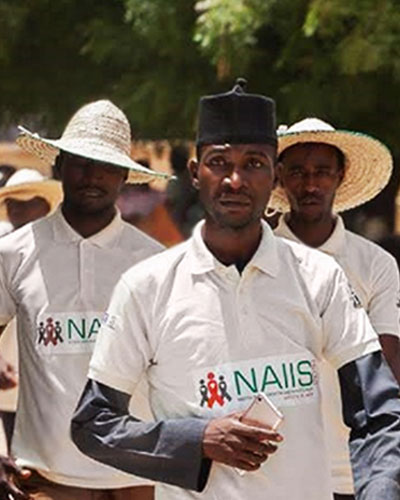
Wednesday, May 01, 2019
Large National Survey Shows Smaller HIV Epidemic in Nigeria Than Once Thought and Highlights Key Gaps
(CDC) The Government of Nigeria, the U.S. President’s Emergency Plan for AIDS Relief (PEPFAR), CDC, and the University of Maryland School of Medicine released new data from the Nigeria HIV/AIDS Indicator and Impact Survey (NAIIS), one of the largest population-based HIV/AIDS household surveys ever conducted. The NAIIS directly measured HIV prevalence and viral load suppression. According to the NAIIS results, the HIV prevalence in Nigeria is lower than previously thought, allowing the country to focus on providing services to the areas of greatest need to control the HIV epidemic.
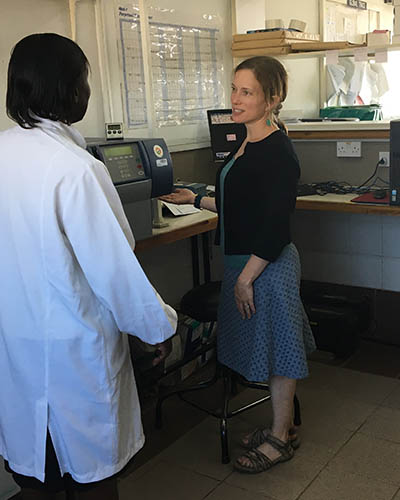
Wednesday, August 02, 2017
UM School of Medicine Receives $2 Million Grant for HIV Research in Malawi
The University of Maryland School of Medicine’s (UM SOM) Institute for Global Health (IGH) and the Institute of Human Virology (IHV) have been awarded a $2 million five-year grant from the Eunice Kennedy Shriver National Institute of Child Health and Human Development to study the impact exposure to HIV has on the immune systems of infants in utero and how those changes impact the ability of infants to fight off infections after birth.
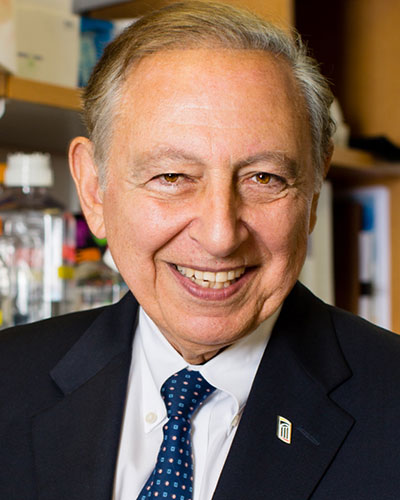
Tuesday, October 25, 2016
"A Call to End HIV/AIDS in America" IHV Director Dr. Robert Gallo's Op-Ed in the Huffington Post
As the new Administration is presented with great challenges facing the United States, one will be a longtime foe, the U.S. HIV/AIDS epidemic. Since President Barack Obama was elected in 2008, I have publicly called on our country’s leaders to utilize the largest global health initiative in history - the President’s Emergency Plan for AIDS Relief (PEPFAR) - as a model to address the U.S. epidemic.

